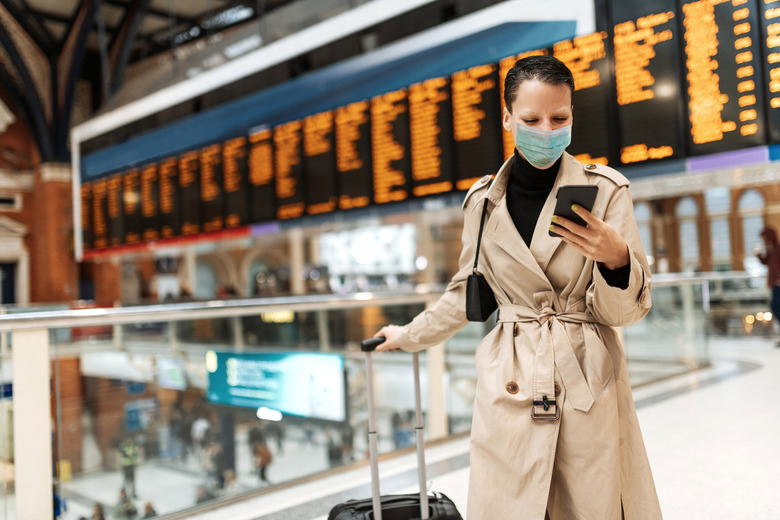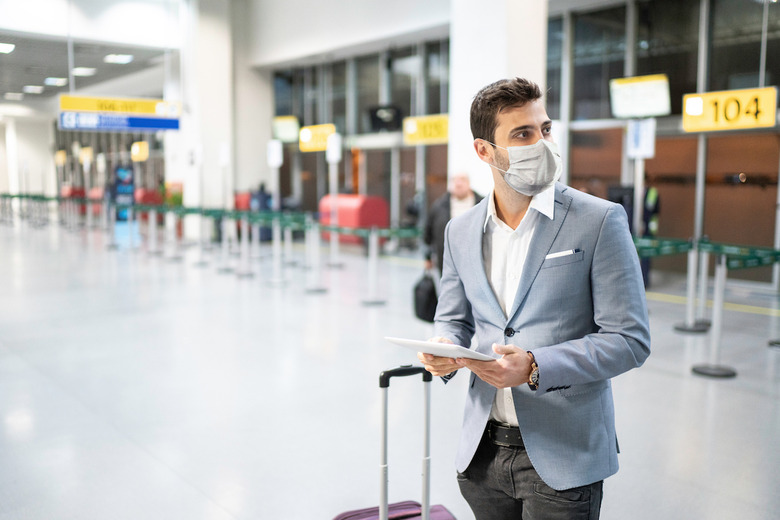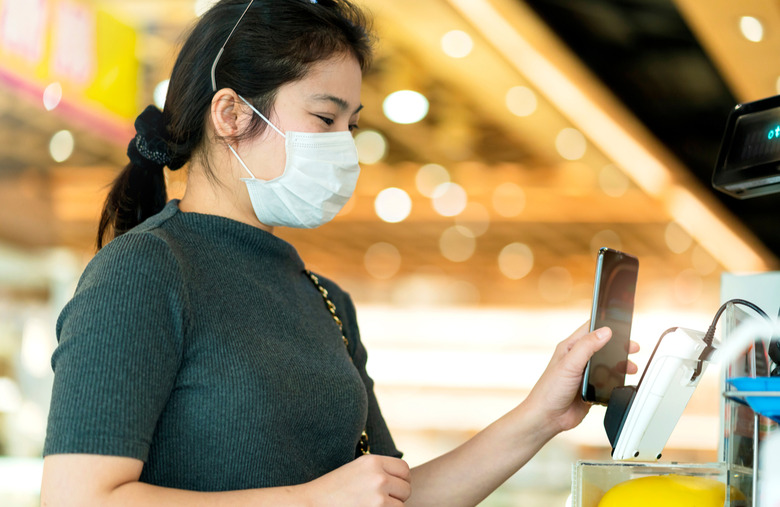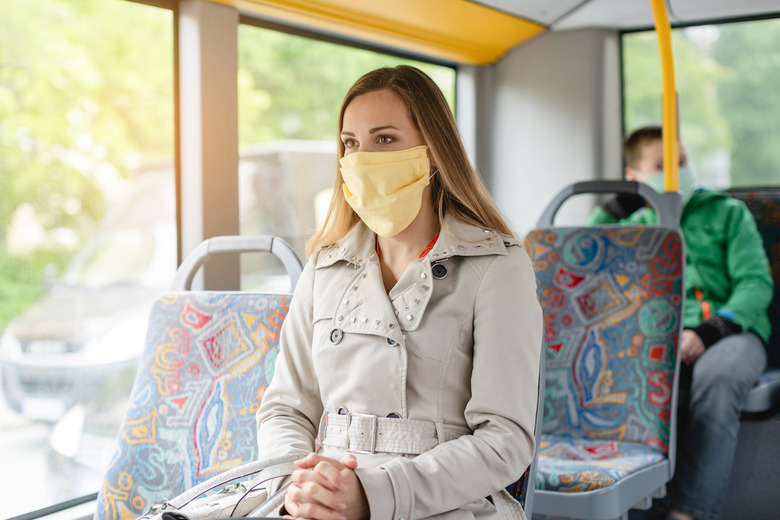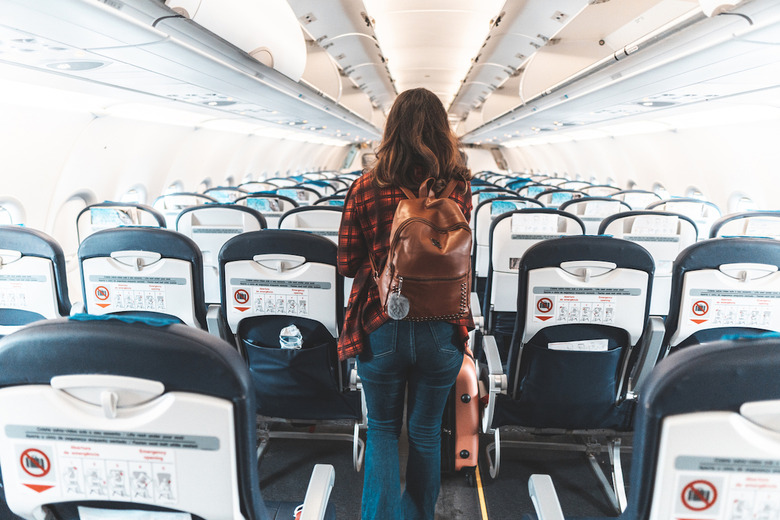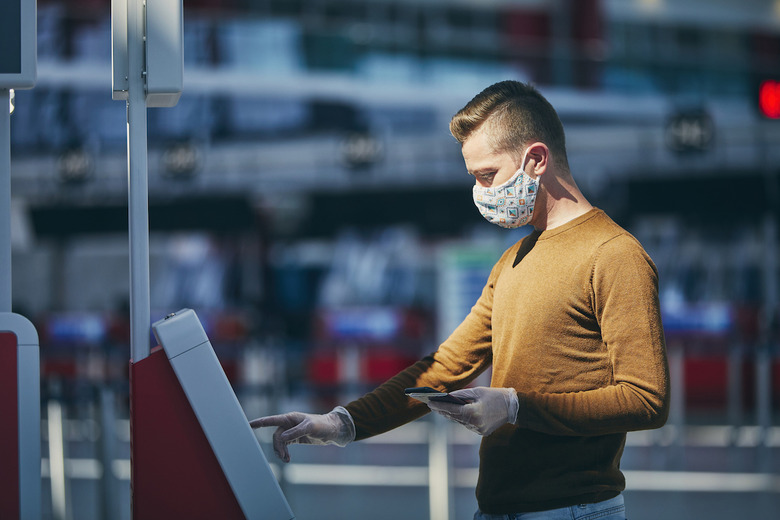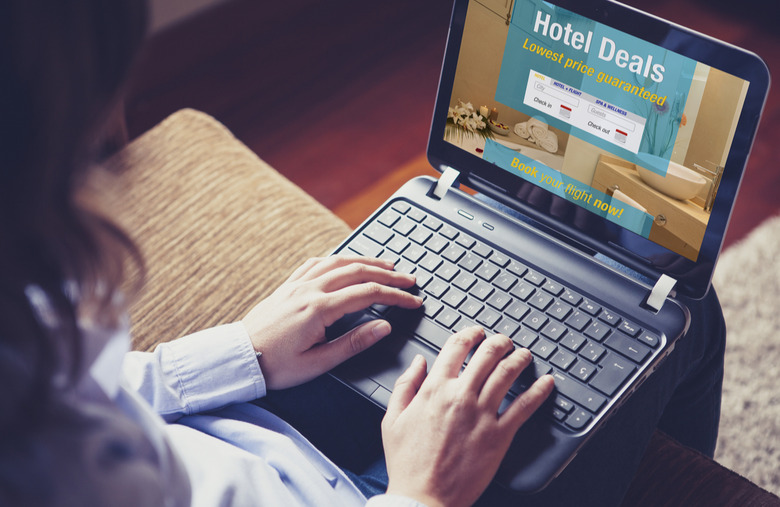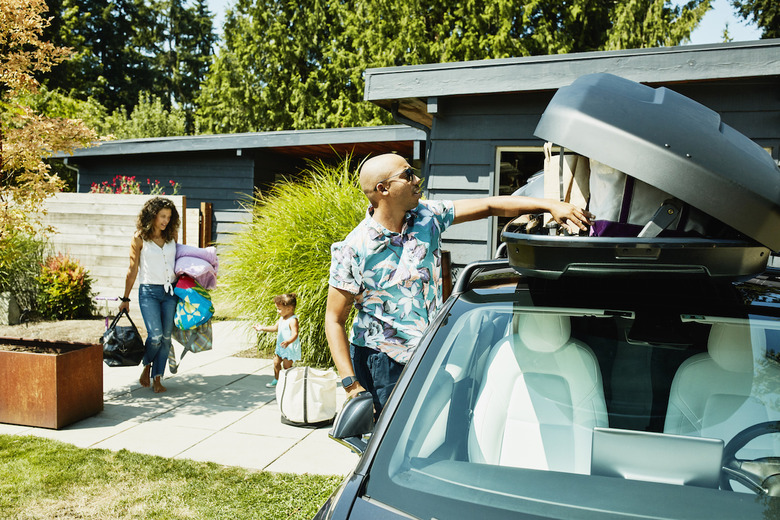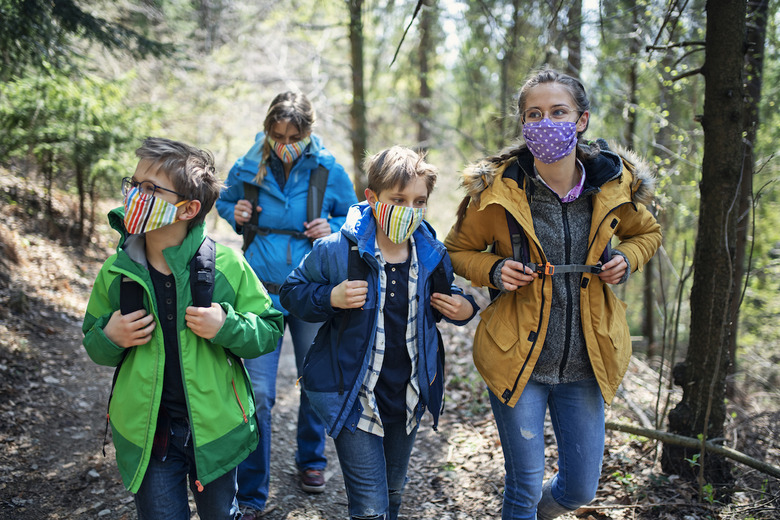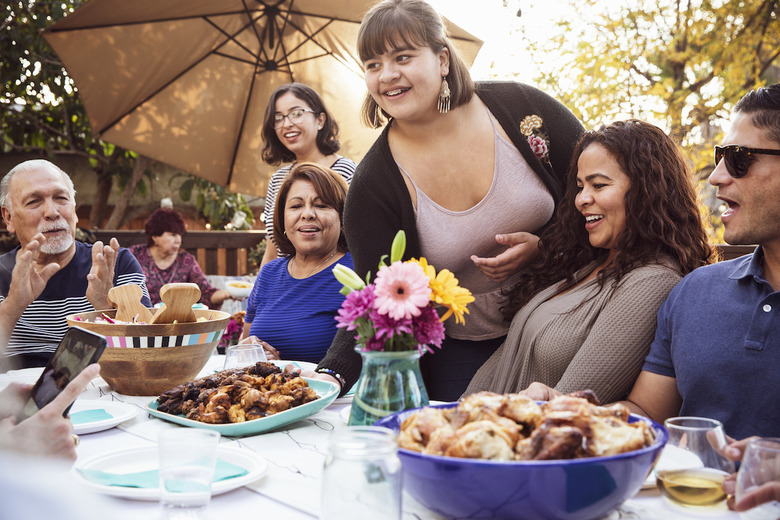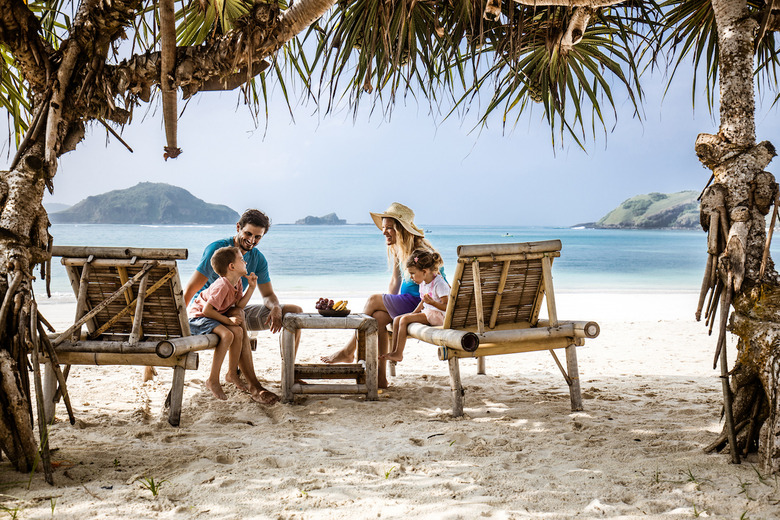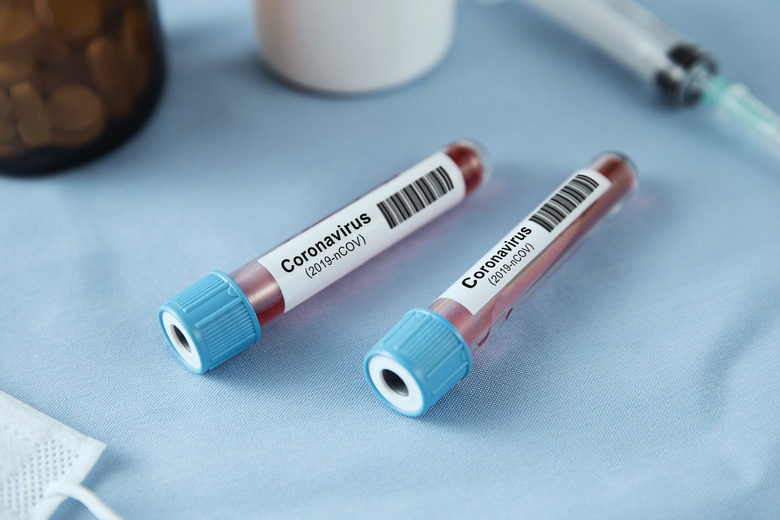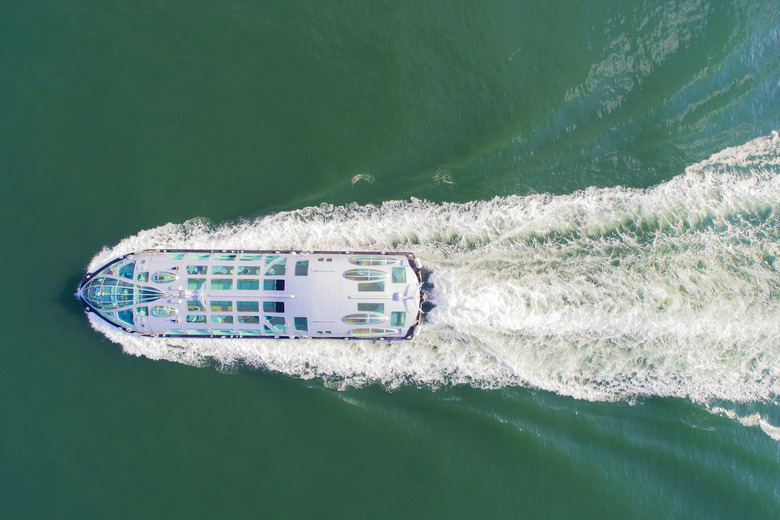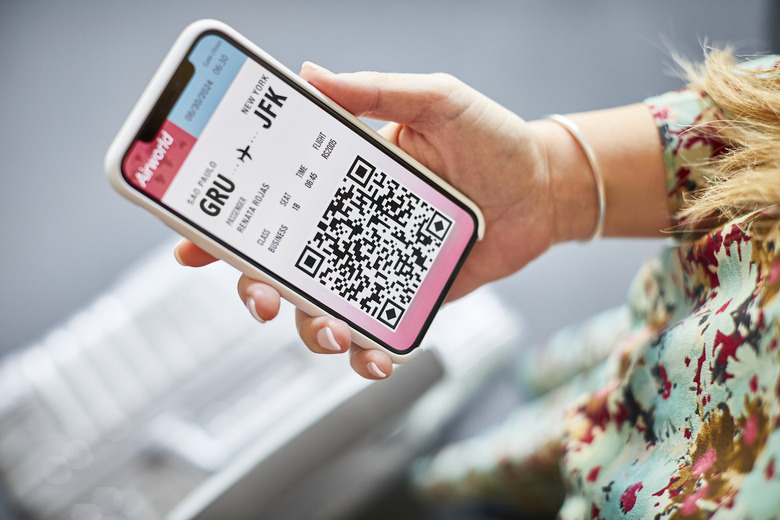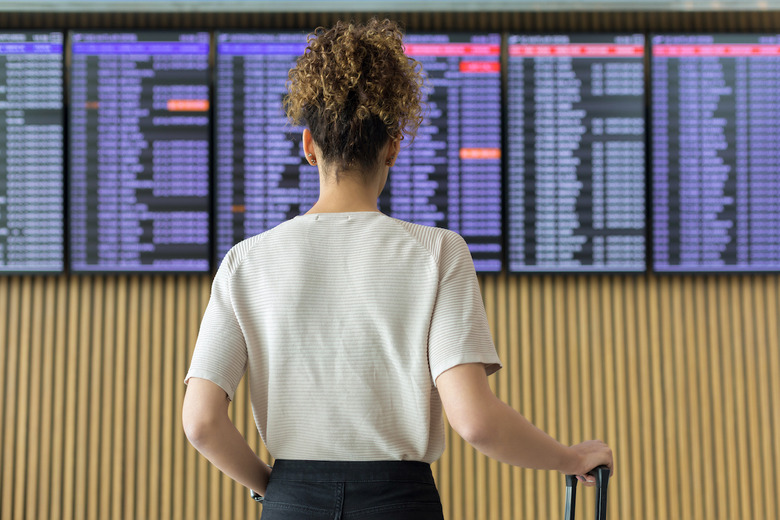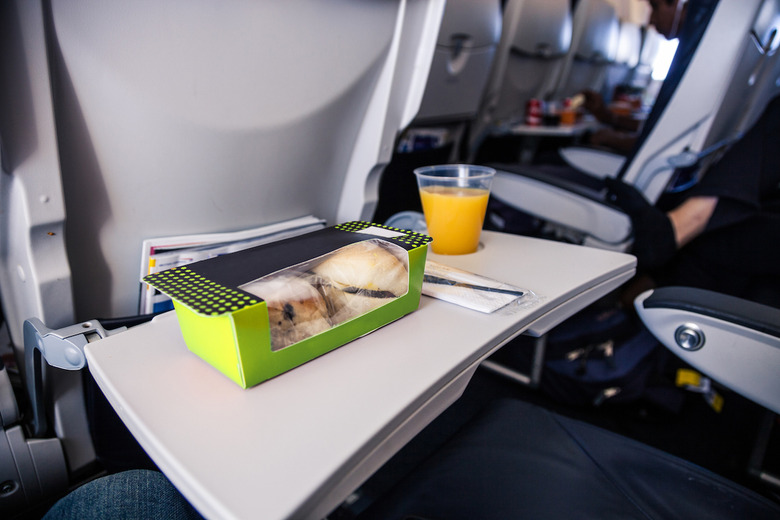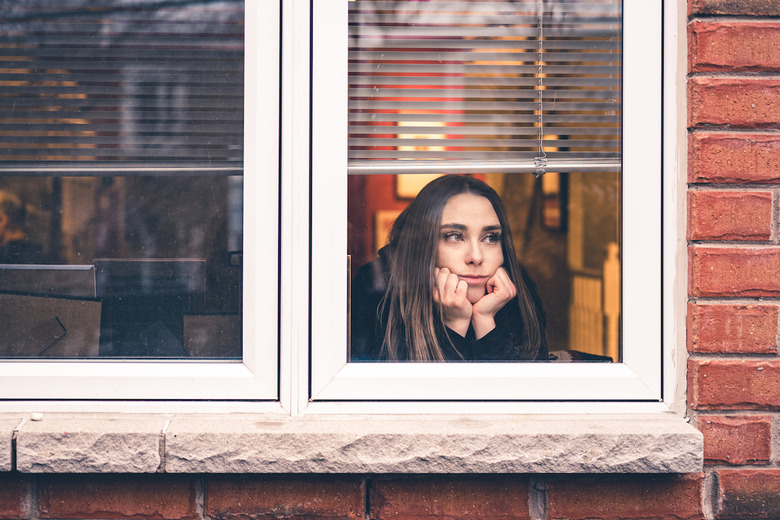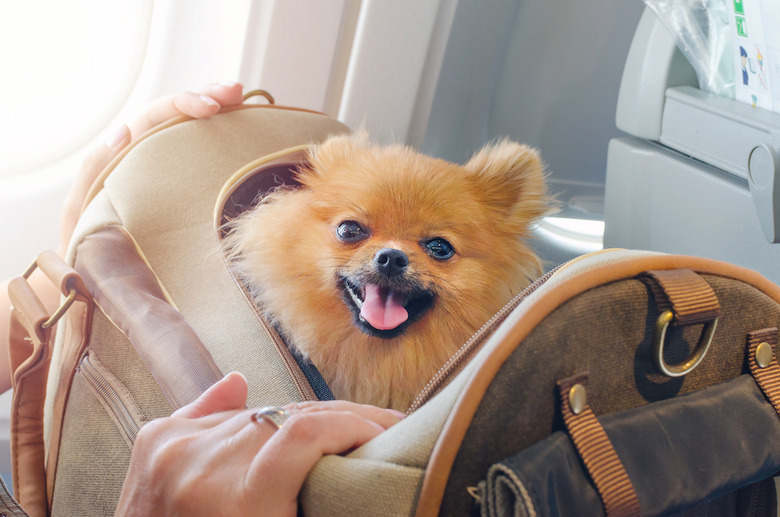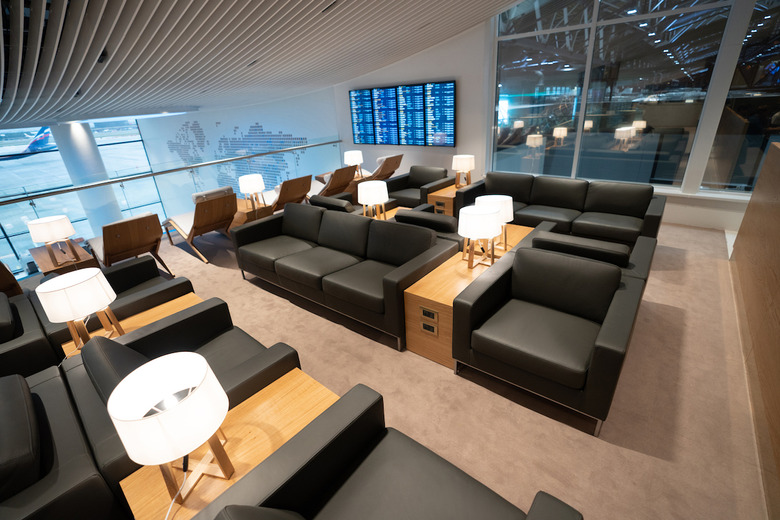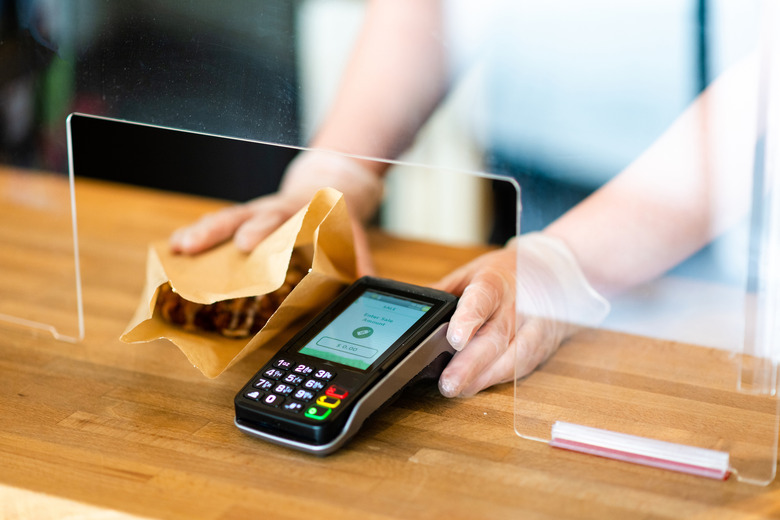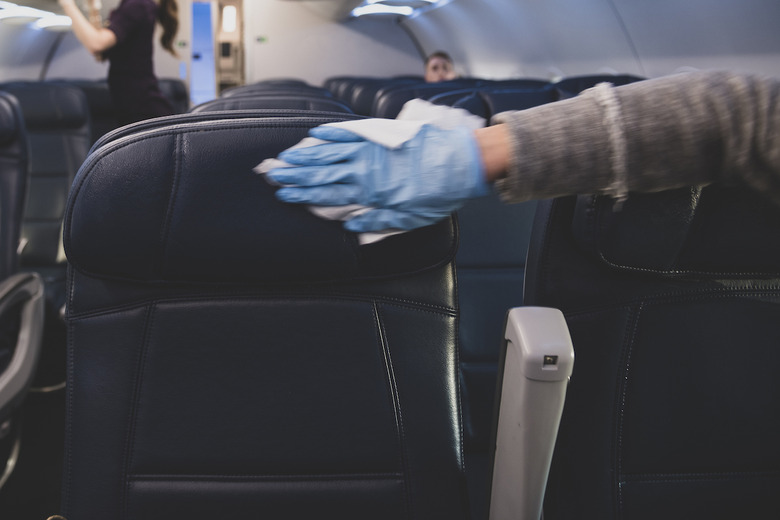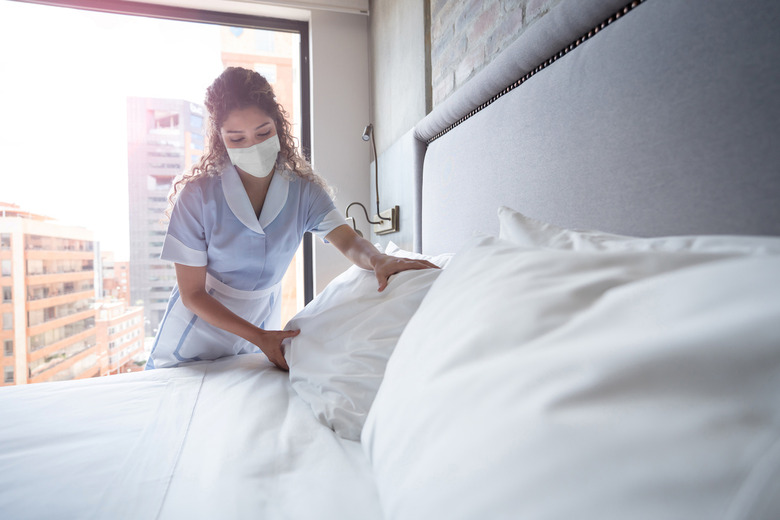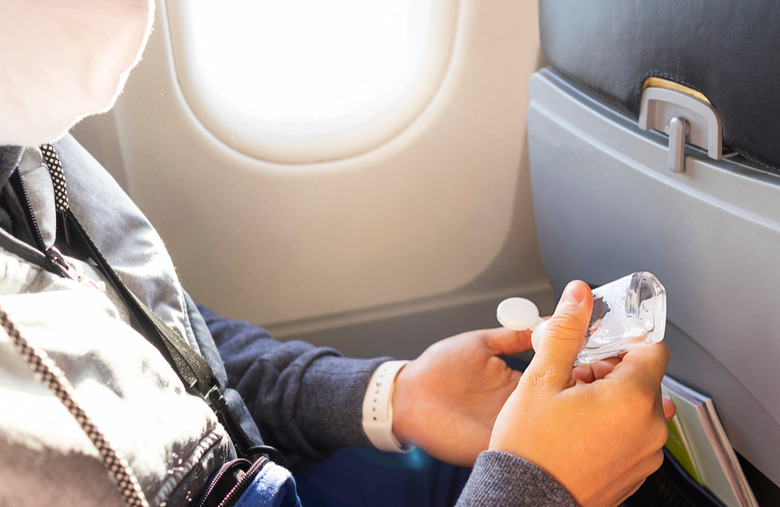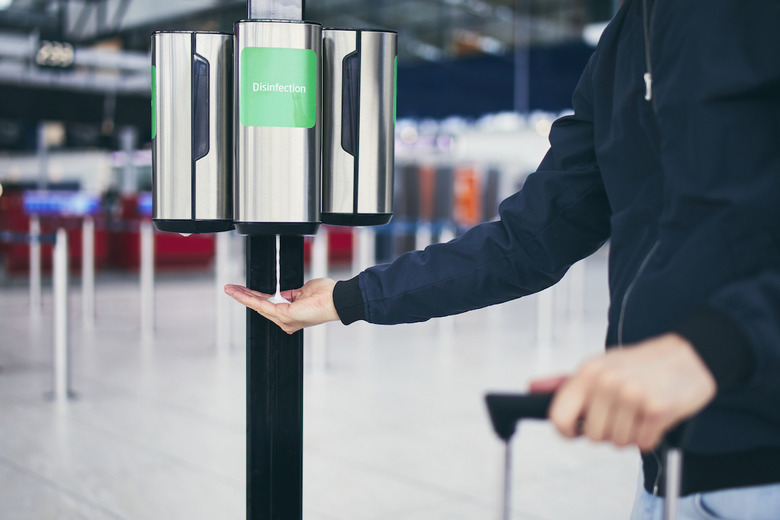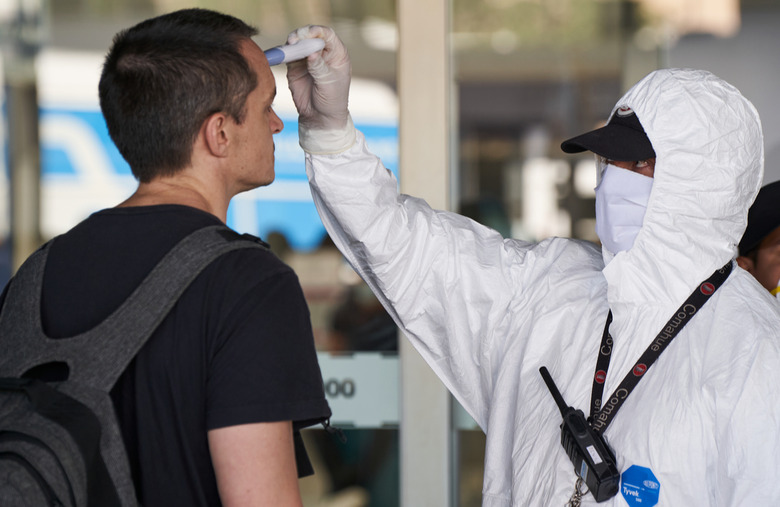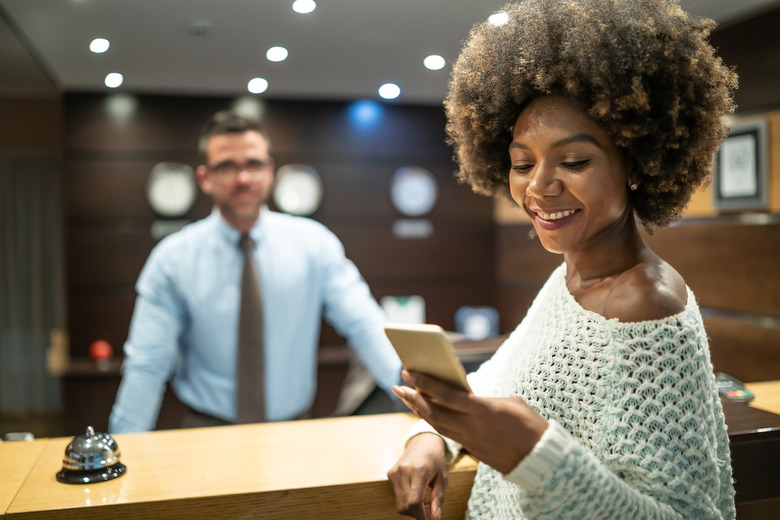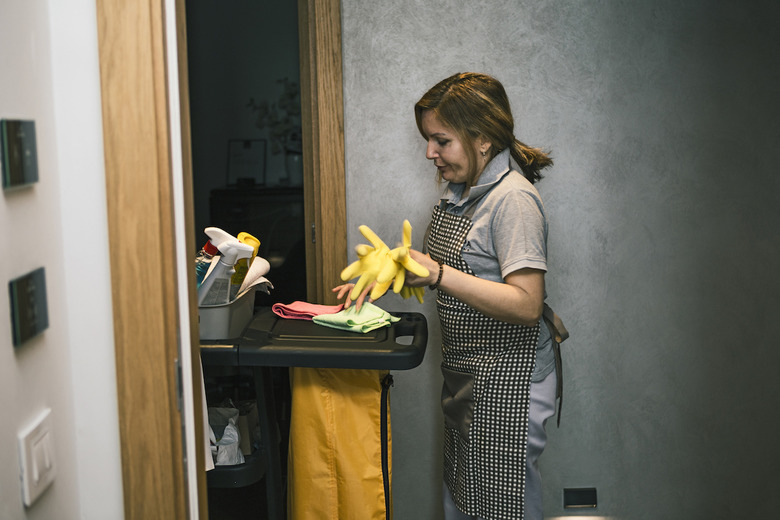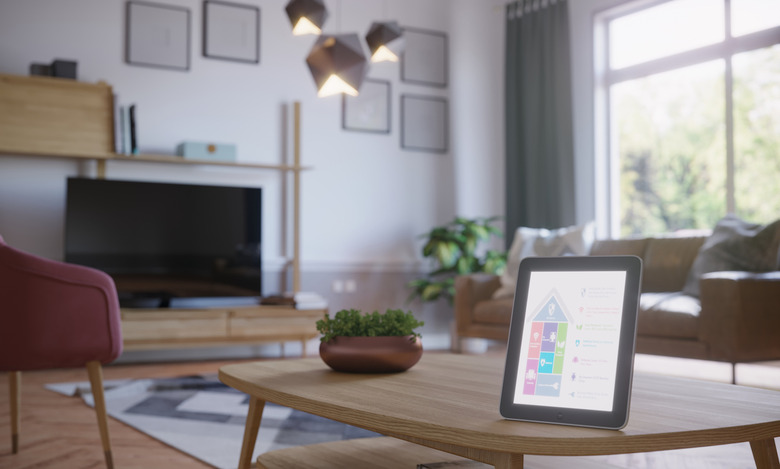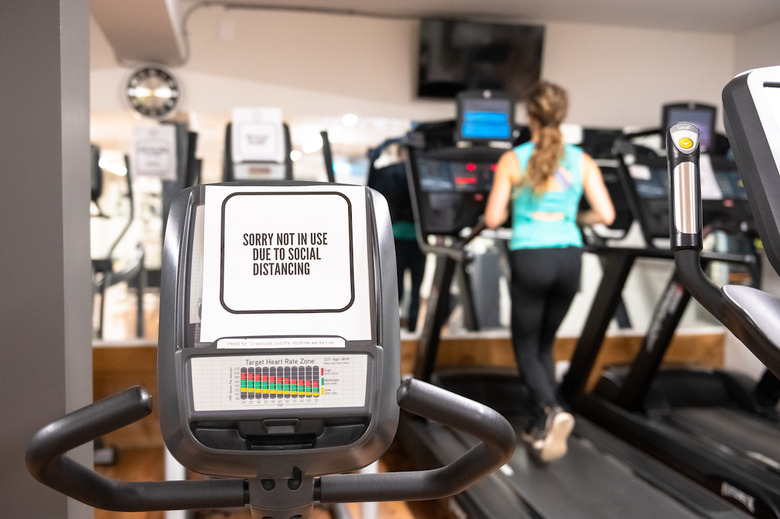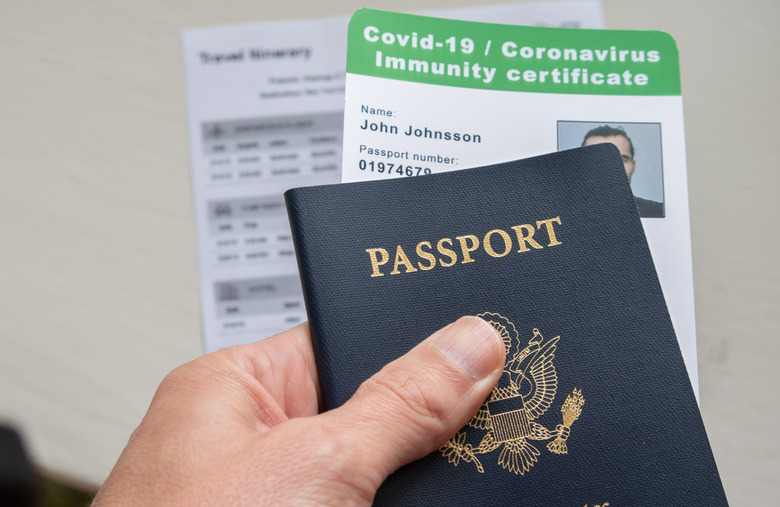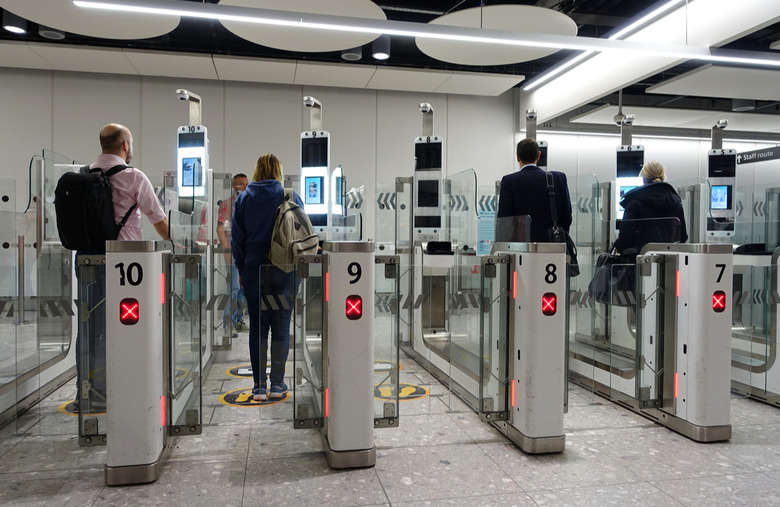Travel Restrictions And Other Changes In The Wake Of Coronavirus
If you're planning a post-pandemic vacation this summer, you should know that a lot has changed in the world of travel — and a lot of it may never be the same again. Here are the ways road trips, air travel, cruises and more will look different in the wake of coronavirus.
Flying with face masks
Many U.S. and international airlines are now requiring that passengers wear face masks on flights, and it's important to wear a face covering properly in order to protect others as well as yourself. While this will definitely be a requirement in the short term, it remains to be seen whether it'll become common practice in the long term.
More touchless payment
Touchless payment is already a convenient feature for rideshares and taxis during the coronavirus pandemic, but it's also gaining traction with merchants and vendors throughout most industries, including travel. Expect more contactless payment options set up at stores, gift shops, restaurants and ticket desks.
Social distancing on public transportation
It's harder to social distance in some locations than others, especially in cities where public transportation is a more common method of getting around. Subway systems like New York City's MTA, for example, have added floor markings to platforms and train cars to indicate how far apart riders should stand or sit.
Emptier flights
Not only will fewer people be flying in the immediate future, but some airlines have also begun blocking off select seats or preventing the booking of certain seats. Although this gives passengers fewer choices when selecting a seat, it ensures more distance between travelers.
Wearing gloves
Wearing gloves is another good way to prevent the spread of germs during coronavirus. Passengers have already been reported to be boarding planes wearing gloves, a trend that may continue. Dubai International Airport has even made it mandatory for all customers and employees to wear gloves.
More travel deals and discounts
As airlines and travel companies scramble to make up their losses, be on the lookout for discounts and deals that will help you save money on your next vacation. Keep your eyes peeled as experts are predicting super cheap flight tickets and deals from hotels and cruise lines to drum up business in the months ahead.
More people choosing driving over flying
According to a survey by Pilot Flying J, more than half of people plan to take a road trip this summer and one-third are more willing to drive than fly due to concerns over COVID-19. It's not a bad way to vacation if you're worried about the risk of being exposed to crowds, so brush up on the rules of the road and plan a cross-country journey.
More outdoors-focused trips
More than half of the Pilot Flying J survey respondents also reported that they are more likely to take an outdoors-focused trip in the wake of the coronavirus pandemic. This means more people will be going camping, visiting national parks and taking long-distance hikes.
More trips to meet loved ones
With stay-at-home orders and social distancing guidelines in place, people have had to find creative ways of staying in touch with friends and family during the coronavirus pandemic. In fact, more than half of those surveyed by Pilot Flying J reported that quarantine had them reconnecting with friends or family whom they hadn't communicated with in a while, and 64% of those people said they had plans to visit those loved ones over the summer.
Longer vacations
With travel restrictions in place for so long and fears of the spread of COVID-19, many people canceled or postponed vacations and are more eager than ever to start globetrotting again. Two-thirds of those surveyed by Pilot Flying J reported that they're thinking about taking a three-month vacation from work to travel. While it would be the perfect time to plan a big international vacation, a survey by marketing agency Mower found that only 12% of people were willing to travel internationally post-COVID-19.
Blood testing before boarding
There's a lot you can find out from blood tests, and in April, Emirates became the first airline to use rapid testing kits for COVID-19 on passengers prior to boarding. However, The National later reported that Dubai healthcare providers have since been banned from using or selling these kits due to their inaccuracy. Research is still being done for more accurate, faster testing and may come back into play for global travel.
Decline in cruises
With many news reports of the spread of the virus on cruise ships and ongoing safety concerns, cruise lines have rescheduled or canceled sailings altogether as far out as October 2020. The future of cruising seems unclear, and the U.S. State Department still advises against traveling on cruise ships — particularly if you have an underlying health condition — due to increased risk of infection. Maybe consider a trip to an underrated American beach town instead.
Shift toward touchless travel
While many states are easing their social distancing guidelines, the travel industry is increasingly limiting contact between passengers and travel workers. Airlines are encouraging more widespread use of their apps for check-in and boarding, as are railroad companies such as Amtrak, which is also encouraging passengers to use "automatic door open" buttons with their foot in order to move from car to car.
Restricted entry to and from certain destinations
Although you may be eager to see all the cities and countries on your travel bucket list, many destinations, such as China, Switzerland and South Africa, are not allowing in travelers from other countries — or specific countries — in an effort to prevent the spread of disease. The U.S. Department of Homeland Security has a list of restricted countries from which all passengers can only enter the United States through one of 15 airports.
Limited airplane food offerings
One of the many changes in the flight experience in the short term, at least, will be airplane food. In order to limit contact between passengers and flight attendants, onboard food and beverage options have been limited on many airlines, based on flight length and destination.
Quarantine requirements at certain destinations
Certain countries and even certain parts of the United States are requiring that travelers self-quarantine for 14 days from the time of arrival or for the duration of their stay, depending on whichever is shorter. This should be factored into any vacation plans and whether or not you'd like to book — although quarantining may not be so bad if you're staying in a spectacular hotel room.
No checked pets
Pet safety is also important to consider during the coronavirus pandemic, and while you can still carry your pets onboard with you, American Airlines has stopped checking in pets to cargo for now, while Alaska Airlines only allows them on nonstop or direct flights.
Closed airport lounges
In another effort to ensure that people don't get sick while traveling, many airport clubs and lounges are being closed or consolidated with limited operating hours.
Shielded service desks
Another one of the quite visible changes to travel during the pandemic is the physical barriers between workers and passengers. At some ticket desks and flight gates, a plexiglass shield has been erected with a small window for any needed transactions.
More frequent and deeper cleaning of airplanes
Although germs are everywhere, airlines are doing their best to disinfect as much as possible and as deeply as possible. Across the industry, airlines have taken to using electrostatic spray, a hospital-grade disinfectant, on plane interiors when cleaning.
More frequent and deeper cleaning of hotels
Hotel housekeeping staff already have a pretty tough job, and as a result of the COVID-19 pandemic, they're having to do deeper and more frequent cleanings of hotel rooms and facilities, also often using electrostatic sprayers.
More hand sanitizer allowed on flights
After checking the shelf life of your hand sanitizer, make sure to take it on board with you on your next flight. The Transportation Security Administration has increased its normal fluid allowance specifically for hand sanitizer, allowing passengers to bring one container of liquid hand sanitizer up to 12 ounces.
Hand sanitizer everywhere
In fact, along with on flights, you'll find hand sanitizer everywhere you go, whether it's at rest stops, restaurants or airports. Disinfectant wipes and gels are currently being made available on long-distance flights and are becoming a more common presence at areas such as hotel check-in counters and airport boarding gates.
Temperature checks
There are certain medical symptoms you should never ignore, and with COVID-19, a higher-than-normal temperature is one of them. As a result, many American airlines are endorsing the idea of TSA checking passengers' temperatures at airports. Some hotels have already begun the practice before allowing people to check in, and some restaurants could require a health screening before letting people make reservations.
Mobile check-in at hotels
Major hotel chains are also increasingly relying on contactless check-in with the use of mobile apps. Not only are you able to access your hotel reservation and check in on your phone, but at Hilton Hotels and select Marriott International hotels, your phone can also become the digital key to your room — a practice that very well may become a staple of the industry after the pandemic due to its convenience and limited contact.
Hotel rooms may have seals
In an extra measure of ensuring the rooms are kept clean and guests are assured, Hilton Hotels is also placing room seals on doors after they are cleaned so that guests will know that the room has not been accessed after housekeeping has been through it. This kind of savvy hotel hack may also be picked up by other chains as travel becomes more popular again.
Hotels going paperless
Although hotels had already been transitioning to paperless operations in an effort to be more sustainable, the coronavirus pandemic may speed up the process. Some hotels have already gotten rid of paper amenities such as guest directories, room service menus and the complimentary pen and paper, instead replacing them with digital services or making them available upon request.
Limited access to hotel fitness rooms
Fitness rooms and gyms are among other amenities that are being restricted due to the coronavirus pandemic. Hotel fitness centers are being closed multiple times a day for deeper cleaning, and the number of guests being allowed in at one time is also being limited in order to comply with social distancing guidelines. Don't sweat it, though; you can still do a total body workout in your hotel room.
Immunity passports may be issued
While you may not need a passport for every island destination, you may end up being required to show a different kind of "passport" ahead of your next trip. Some governments around the world have floated the idea of issuing "risk-free certificates," often dubbed "immunity passports," to certify that a traveler has recovered from COVID-19 and tested positive for antibodies. Whether or not this will come to fruition, however, remains to be seen as the World Health Organization has advised against it based on the fact that antibody tests are still largely inaccurate.
Your face may become your passport
Facial recognition is yet another travel technology that may become more widely invested in after the pandemic to reduce contact in airports. Major airlines such as American Airlines, British Airways and Qantas had already begun testing out "biometric boarding," in which passengers don't need to present their passport again at the gate when boarding. Instead, they can simply have their face scanned to match the passport photo already on file. If this becomes more widely available, it will be one of the biggest changes to the way we travel.
